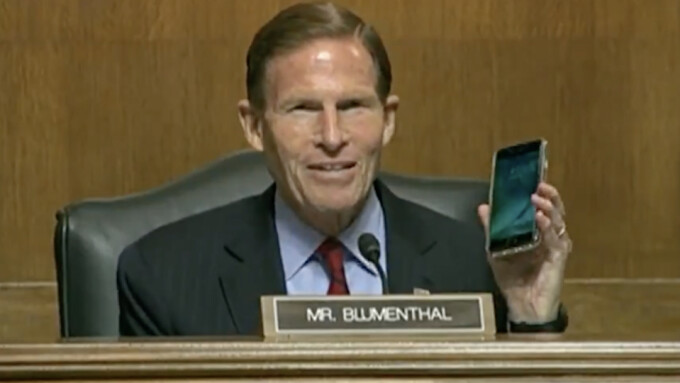WASHINGTON — The Senate Commerce Committee on Thursday approved by a unanimous voice vote two controversial “online safety” bills that have been criticized by leading digital rights and privacy advocates.
The Kids Online Safety Act (KOSA) and the Children and Teens’ Online Privacy Protection Act (COPPA) now head to the Senate floor. This is the second time the bills have gone through this process; the first attempt to pass them was in 2022.
As XBIZ reported, digital rights advocates have been sounding the alarm about privacy and censorship concerns since the bills’ first versions.
KOSA has had bipartisan support, with Senators Richard Blumenthal (D-Connecticut) and Marsha Blackburn (R-Tennessee) selling it to their colleagues as a “protect the children” measure.
In a scathing March 2022 editorial, however, Jason Kelley of leading digital rights organization Electronic Frontier Foundation argued that behind its kid-friendly name and supposed mission, KOSA hides “a plan to require surveillance and censorship of anyone 16 and under.”
The bill, Kelley noted, would actually “greatly endanger the rights, and safety, of young people online” while also chilling controversial speech — including sexual expression — across the internet.
'Handing Parenting Over to Bureaucrats'
On Tuesday, President Joe Biden urged lawmakers to take action. Politico’s Rebecca Kern described Biden repetitively “chanting” the words “Pass it” after referencing KOSA and COPPA during a public appearance about expanding access to mental health care.
During the Thursday “markup” session, Blackburn proposed an amendment “to remedy some of the concerns raised by digital rights groups, mainly language requiring platforms to verify the age of their users,” news outlet The Verge reported.
“Lawmakers approved those changes along with the bill, but the groups fear that platforms would still need to collect more data on all users to live up to the bill’s other rules.”
Digital rights advocates, The Verge noted, “have also suggested that KOSA could prevent LGBTQIA+ teens from finding the resources they may need online without coming out to their parents due to the parental consent requirements of the bill.”
Carl Szabo, vice president and general counsel for tech industry trade group NetChoice, said, “When it comes to determining the best way to help kids and teens use the internet, parents and guardians should be making those decisions, not the government. Rather than violating free speech rights and handing parenting over to bureaucrats, we should empower law enforcement with the resources necessary to do its job to arrest and convict bad actors committing online crimes against children.”
A coalition of nonprofits including the Electronic Frontier Foundation, ACLU, Woodhull Freedom Foundation, National Coalition Against Censorship, Unite for Reproductive & Gender Equity and Defending Rights & Dissent has called for a week of action from July 20 to 28, to contact lawmakers to express opposition to controversial legislation like KOSA and similar bills.
The campaign urges stakeholders and internet users to “Tell Congress, Say No to #BadInternetBills.”







